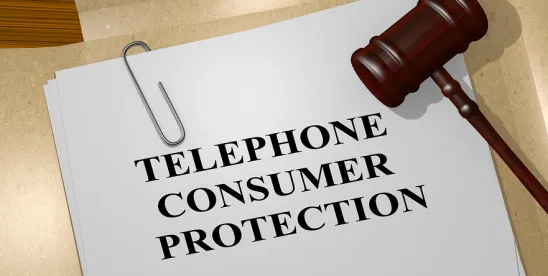Its a factual scenario that arises far more than it should.
A customer provides a cell phone number to a business, consenting to receive phone calls in the process. Phone calls are placed to that customer at that number. But it turns out that the customer does not actually use that number and someone else–usually a close family member such as a husband or wife– turns around and sues the business for illegal calls under the Telephone Consumer Protection Act (“TCPA.”) Talk about a frivolous waste of a lawsuit.
But these sorts of cases arise all the time under the TCPA. For instance, in Rodriguez v. Premier Bankcard, Case No. 3:16CV2541, 2018 U.S. Dist. LEXIS 149225 (N.D. Oh. Aug. 31, 2018) a Husband provided a phone number to a finance company as a valid means of contacting him to discuss his account. Although husband was the subscriber to the number the Plaintiff–his wife–claimed that she was actually the sole user of the phone. When the finance company called the phone to discuss her husband’s account, she sued Defendant in a nationwide TCPA class action contending that it had called her and unnamed class members without consent. Unreal.
Defendant argued that it had the consent of the phone’s subscriber to place the calls so…I mean, come on. Nonetheless the court found the issue a “close[] question” framing the issue as: “What happens then, when one “called party” gives prior express consent to contact a certain number, and another doesn’t?” Rodriguez at *19.
After first spinning its wheels addressing statutory standing issues that don’t real bear on the issue, the Court looked to authority from the FCC and the Third Circuit to the effect that it is “‘reasonable for callers to rely’ on ‘consent to receive robocalls’ from either type of called party,”— meaning either the subscriber, or the non-subscriber customary user can give prior express consent.” Rodriguez at *19 citing Leyse, 804 F.3d at 327 n.15 and 30 FCC Rcd. at 8001-02. Thus, the Court concludes, the husband’s consent precludes the wife’s claim, regardless of whether she ever personally gave prior express consent.
The Rodriguez court worked hard to arrive at what should have been an easy answer–the TCPA plainly authorizes calls with the consent of the “called party.” Everyone agrees that a subscriber is a “called party”–although other parties may also be a “called party”–so calls made with the consent of the “subscriber” are obviously not actionable, even if someone else happens to pick up the phone or use the phone number with the subscriber’s consent. Anyone using that number does so subject to the consent granted by the subscriber, just like anyone buying land takes it subject to whatever conveyances the former land owner may have made. Seems like pretty straightforward stuff.



 />i
/>i